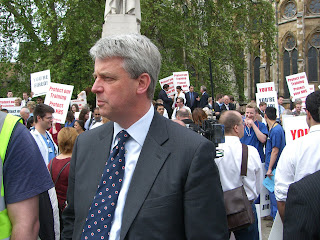Today the Times newspaper reported that lawyers are being encouraged to take 'time out' in The Priory, usually well known for their high profile clients. A book entitled 'Why Lawyers Should Surf' co-authored by myself and barrister Tim Kevan is a self-help book aimed especially at lawyers, after several studies have cited that lawyers suffer from an above average rate of low mood. An extract from the book is given below:
"In the early 1990s a John Hopkins University study compared the rates of depression among one hundred and four occupations and found that lawyers were nearly four times above the average rate of depression. This then begs the question ‘why do lawyers have such a high level of depression’? There are several hypotheses for this, well beyond the explanation that law is a stressful and busy job.
Professor Martin Seligman argues that the key thing about lawyers is that they tend to have pessimistic personality types. When lawyers are asked the famous question: ‘Is the cup half empty or half full?’ most respond by saying 'half empty'. This somewhat pessimistic response may be a distinguishing advantage within the legal profession, because viewing troubles as pervasive and continuing, is at the very heart of being a prudent lawyer. The inherent and honed ‘scepticism skills’, enable the lawyer to see every conceivable hiccup or catastrophe that might occur in legal transactions. Therefore, the ability to anticipate any pending or possible snare or disaster gives a positive legal outcome, as the lawyer can then help clients defend against potential negative eventualities. Hence, ‘pervasive pessimism’ and possibly ‘catastrophizing’ can be seen as a powerful legal tool, helping to anticipate disaster, and encouraging lawyers to think the worst before it has happened. However, on the flip side of the same coin, is that if you take that same pessimistic mindset home with you from the office, it may form part of the answer as to why lawyers are more likely to suffer with low moods.
Another hypothesis is that lawyers tend to express ‘high-dominance’ as a key feature of their personality; again something which aids successful legal careers. Key features of a ‘high-dominance’ personality include people who: interrupt others, talk longer, take charge of conversations, decide when to change topic, state strong preferences and opinions, have an unyielding manner and tend to enjoy giving instructions and advice. ‘High dominance’ personalities also tend to believe in statements, such as, ‘winning is more important than playing the game’. This may be an integral part of being a successful lawyer who never looses a battle, however, when this is mindset extended outside the workplace it fits less well with the challenges of daily life. When things have not gone the way high dominance personalities have planned, it can be a time when they struggle to manage or cope on a psychological level.
A further hypothesis is based on the accumulating psychological evidence that much work stress arises from interacting with people rather than things. In fact, ‘emotional labour’ is more mentally taxing than the old fashion labour jobs that were more physically taxing. It has been shown that the more your job requires you to fake emotions, the more emotionally detached you become from those around you. Hiding or faking emotions, can lead to ‘clinical burnout’. Since lawyers keep a professional detachment from their cases and cannot get too emotionally involved, this could potentially lead to the burnout state of mind. Burnout can result in symptoms of emotional exhaustion, fatigue, detached attitude towards others, low sense of effectiveness, helplessness and also low mood.
The risk of the inherent pessimism means that lawyers should be especially careful not to extend the negative mindset perspective into other areas of their lives. This book will hopefully assist the reader in finding perspective, so that even during the most difficult times in life a context can be found, which can also provide something to learn and grow from. As Shakespeare said, “There is nothing either good or bad, but thinking makes it so”.
Another hypothesis is that lawyers tend to express ‘high-dominance’ as a key feature of their personality; again something which aids successful legal careers. Key features of a ‘high-dominance’ personality include people who: interrupt others, talk longer, take charge of conversations, decide when to change topic, state strong preferences and opinions, have an unyielding manner and tend to enjoy giving instructions and advice. ‘High dominance’ personalities also tend to believe in statements, such as, ‘winning is more important than playing the game’. This may be an integral part of being a successful lawyer who never looses a battle, however, when this is mindset extended outside the workplace it fits less well with the challenges of daily life. When things have not gone the way high dominance personalities have planned, it can be a time when they struggle to manage or cope on a psychological level.
A further hypothesis is based on the accumulating psychological evidence that much work stress arises from interacting with people rather than things. In fact, ‘emotional labour’ is more mentally taxing than the old fashion labour jobs that were more physically taxing. It has been shown that the more your job requires you to fake emotions, the more emotionally detached you become from those around you. Hiding or faking emotions, can lead to ‘clinical burnout’. Since lawyers keep a professional detachment from their cases and cannot get too emotionally involved, this could potentially lead to the burnout state of mind. Burnout can result in symptoms of emotional exhaustion, fatigue, detached attitude towards others, low sense of effectiveness, helplessness and also low mood.
The risk of the inherent pessimism means that lawyers should be especially careful not to extend the negative mindset perspective into other areas of their lives. This book will hopefully assist the reader in finding perspective, so that even during the most difficult times in life a context can be found, which can also provide something to learn and grow from. As Shakespeare said, “There is nothing either good or bad, but thinking makes it so”.
The book can be pre-ordered on amazon here


























